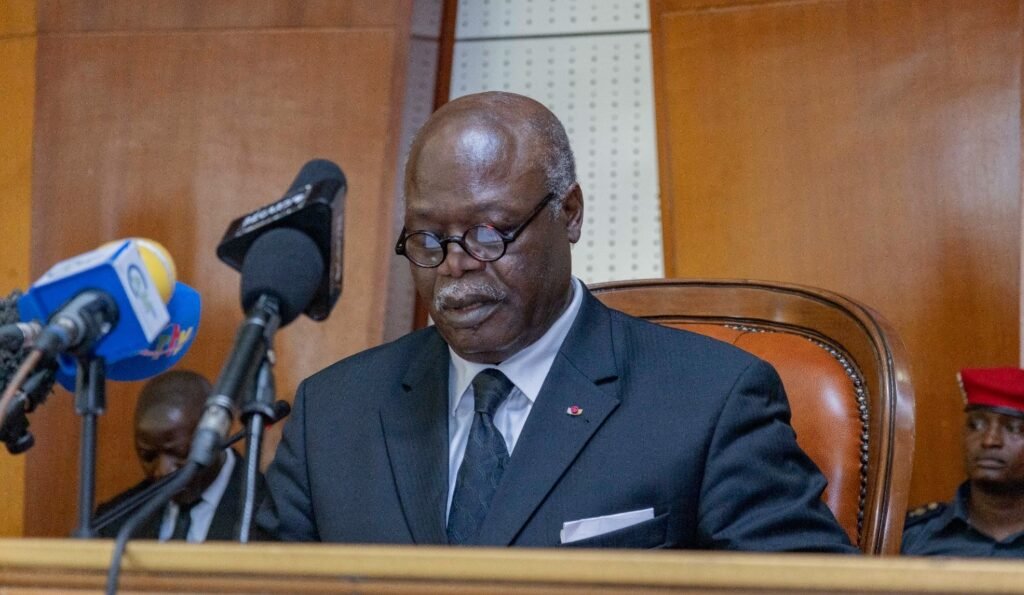By Etienne Mainimo Mengnjo
The government of Cameroon has tabled a bill to regulate national archives in the country. The Bill No. 2051/PJL/AN tabled before the National Assembly on June 12 is one among the six bills introduced for scrutiny and adoption.

The bill 16-page bill divided into seven chapters is aimed at promoting a national archives policy and a national archive system. Besides restoring physical and digital archive, preserving a national archive heritage, the bill also seeks to revitalize digital archives.
Additionally, the bill seeks to professionalize archiving and empower all actors involved in the archives production chain. The Bill among other things is aimed at establishing a mechanism to supervise the management of archives in sectoral ministries, establish a mechanism to finance the National Archives System and strengthen the traceability and security of archives.
The bill also introduces categories of archives and specifies the legal regime applicable to each category. It distinguishes public from private archives.
According to the bill, public archives consist of documents emanating from the conduct of the business of the State, its agencies and regional and local authorities, as well as documents emanating from the activities of bodies governed by private law and entrusted with the management of public services or a public service.
They are unseizable, inalienable, intangible and inviolable. Private archives, for their part, are documents created or received by natural or legal persons under private law, without any public mandate or public service mission. The bill stipulates that private archive of historical interest may be classified as public archives and that the State has a pre-emptive right over any private archival document offered for public sale.

The bill provides for the control of archives in order to ensure the proper preservation of the national archival heritage. Such control will be carried out by inspectors and controllers of archives, special jurisdiction criminal investigation officers, who will take an oath before the territorially competent High Court for the entire duration of their career.
It establishes a public body responsible for managing the National Archives System, the organization and functioning of which shall be laid down by law. It also creates a special fund to finance the development and modernization of archives. The bill also provides for a dissuasive regime of sanctions, however, with an accompanying compromise procedure.
Its adoption by Parliament will help to modernize the current system by providing it with a more appropriate legal framework. It will also create added value in terms of human resources by revitalizing digital archives, professionalizing archiving and establishing a mechanism for monitoring the management of archives in sectoral ministries.
Another bill tabled in Parliament is authorizing the President of the Republic to ratify the Air Transport Agreement between the Government of the Republic of Cameroon and the Government of Canada, signed on 1 June 2022 in Yaounde.
The new legal instrument will strengthen cooperation between the two countries which have enjoyed friendly relations for more than 50 years. This new legal framework will also pave the way for the consolidation and development of trade opportunities between the Parties’ airlines, which will ultimately reduce transport costs between the two destinations, thereby facilitating the movement of people and goods.
This agreement builds on the Convention on International Civil Aviation, signed in Chicago on 7 December 1944, to which our two countries are parties. Its signature is therefore intended to promote the reciprocal and balanced operation of air services between Cameroon and Canada.

This bill seeking to authorize the President of the Republic to proceed with Cameroon’s accession to the World Intellectual Property Organization Copyright Treaty adopted on in Geneva, Swiss Confederation 20 December 1996 was also table.
Adopted on 20 December 1996, the World Intellectual Property Organization (WIPO) Copyright Treaty entered into force on 6 March 2002. It is a special agreement, within the meaning of the Berne Convention, for the protection of works and the rights of their authors in the digital environment. It aims to develop and protect literary and artistic works in the most effective and uniform manner.
Another bill tabled was the bill seeking to authorize the President of the Republic to proceed with Cameroon’s accession to the International Convention for the Protection of Performers, Producers of Phonograms and Broadcasting Organizations, adopted in Rome, Italy on 26 October 1961.
The bill seeking to authorize the President of the Republic to proceed with Cameroon’s accession to the World Intellectual Property Organization (WIPO) Performances and Phonograms Treaty, adopted in Geneva, Swiss Confederation on 20 December 1996 was also tabled.
The last bill that was tabled is the bill seeking to authorize the president of the Republic to ratify the partnership agreement between the European Union and its Member States, on the one hand, and members of the Organization of African, Caribbean and Pacific States (OACPS), on the other hand, signed in Samoa on 16 November 2023.
Ratifying the Samoa Agreement will enable Cameroon to secure financing obtained under the Cotonou Agreement, and to compete with the other States to mobilize new funds for OACP countries. Similarly, it will give a definite advantage to our compatriots seeking to occupy positions in the various joint OACPS-EU institutions at the regional level. Furthermore, this process will deepen the already fruitful partnership between Cameroon and the European Union.
These bills will be reviewed by relevant committees before being voted on by the National Assembly. If adopted, they will then proceed to the Upper House for further consideration. Following approval from both houses, the President will enact it into law.